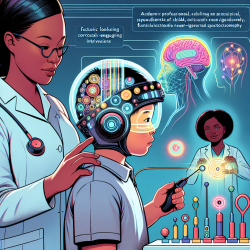The COVID-19 pandemic has left an indelible mark on the world, affecting every aspect of life, including child and adolescent psychiatry. A recent study titled "Child and Adolescent Psychiatry Outpatient Clinic Referrals During Covid-19 Pandemic in Turkey" provides valuable insights into how the pandemic has reshaped mental health services for young people. This blog post explores the key findings of this research and offers guidance for practitioners looking to enhance their skills and adapt to the new normal in child psychiatry.
The Impact of COVID-19 on Psychiatric Referrals
The study highlights a significant decrease in psychiatric referrals during the early months of the pandemic. In 2019, 70.5% of cases were admitted compared to only 29.5% in 2020. This decline is attributed to fear of disease transmission and adherence to public health restrictions. Interestingly, while overall referrals decreased, certain conditions saw an increase in diagnosis rates.
Key Findings:
- The rates of attention-deficit hyperactivity disorder (ADHD), oppositional defiant disorder (ODD), conduct disorder (CD), depressive disorder (DD), panic disorder (PD), school refusal, and sleep disorders increased significantly in 2020.
- The use of medication as part of treatment rose from 47.6% in 2019 to 63.2% in 2020.
- The mean age of referred cases increased slightly from 9.51 years in 2019 to 10.39 years in 2020.
Adapting to New Challenges
The pandemic has underscored the need for flexibility and innovation in delivering mental health services. Here are some strategies practitioners can adopt:
- Embrace Telehealth: Although telehealth was not widely used during the study period in Turkey, it has since become an essential tool for maintaining continuity of care while minimizing exposure risks.
- Focus on ADHD and Externalizing Disorders: With an increase in these diagnoses, practitioners should prioritize interventions that support families struggling with ADHD and related conditions.
- Cultivate Resilience: Encourage activities that build resilience among children and adolescents, such as mindfulness practices and structured routines that mimic pre-pandemic life.
The Importance of Ongoing Research
This study serves as a reminder of the importance of ongoing research to understand the evolving landscape of child psychiatry. Practitioners are encouraged to stay informed about new findings and integrate evidence-based practices into their work. By doing so, they can better meet the needs of their young patients during these challenging times.
Child and Adolescent Psychiatry Outpatient Clinic Referrals During Covid-19 Pandemic in Turkey










